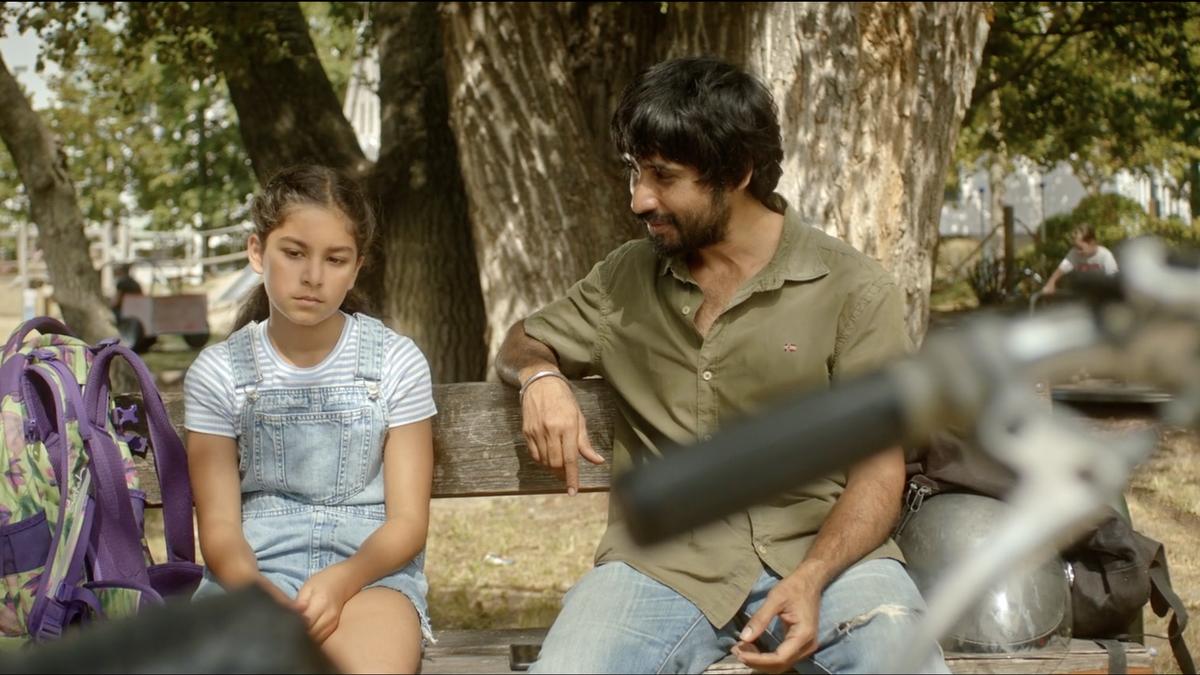
An Austrian film featuring an Indian actor speaking German is nearing completion in Vienna, marking a project that is without precedent. Written and directed by Indian-origin Austrian filmmaker Sandeep Kumar, the movie, titled “Happy,” stars Mumbai-based actor Sahidur Rahman, who takes on the challenging role of an illegal immigrant dealing with the calamitous consequences of a deportation notice.
Sahidur Rahman, an alumnus of the prestigious National School of Drama in Delhi, was previously seen in Karan Tejpal’s “Stolen,” which world-premiered at the 80th Venice Film Festival last year. His involvement in “Happy” required significant preparation, particularly in learning the German language—a feat he accomplished within four months before the filming began.
Originally, Sandeep Kumar had approached a busy Mumbai-based actor to play the lead role in “Happy.” Though the actor appreciated the script, his prior commitments prevented him from joining the project. “Sahidur has done an incredible job,” Kumar stated during an interview at the 77th Cannes Film Festival.
Kumar disclosed that the idea for “Happy” had been gestating in his mind since 2012. “Newspaper sellers in the subways and other spaces of Vienna are mostly immigrants from the subcontinent who lead precarious lives,” he explained. As Kumar began interviewing people for an initial documentary project, he was profoundly moved by their stories, and decided to turn the project into a fiction film instead. “I felt I would be more at ease making fiction. Documentary filmmaking is not my forte,” he admitted.
The urgency of the narrative grew after a significant number of illegal immigrants were deported from Austria in 2023. “The time was ripe. I simply had to tell the story,” Kumar emphasized. “Happy” pivots around the protagonist’s relationship with his nine-year-old half-Austrian daughter, highlighting his struggles to secure happiness for both himself and his daughter against the looming threat of deportation from Austria.
“The film also focuses on people around the protagonist who have it all but still have to fight to achieve happiness,” Kumar elaborated. The storyline thus extends beyond the immediate plight of the central character, touching broader existential themes.
.
Sandeep Kumar’s previous film, “Mehrunisa,” starred the late Farrukh Jaffar and premiered at the International Film Festival of India, Goa, in 2021. The film then traveled to various other festivals, solidifying Kumar’s reputation as an insightful filmmaker. Building on this success, Kumar has high hopes for “Happy.”
Backed by the Austrian Film Commission, “Happy” incorporates a smattering of Hindi and English into its predominantly German dialogue. The film is set for a festival circuit run before it hits theaters later this year. This multifaceted linguistic approach aims to capture the authentic experiences of immigrants often caught between different cultures and languages.
Rahman’s commitment to the role and the challenges it presented speak volumes about his dedication to the craft. Mastering a new language for a role is no small feat, and his performance is expected to add a layer of authenticity and depth to the film. The actor’s portrayal of an illegal immigrant in a foreign land grapples with universally resonant themes of identity, belonging, and the pursuit of happiness.
Sandeep Kumar’s effort to tell this poignant story aligns with a broader trend of diaspora filmmakers exploring the complex lives of immigrants. Through “Happy,” he aims to shed light on the often-overlooked experiences of undocumented individuals who risk everything for a chance at a better life.
As the film nears its final production stages, it stands as a testament to the power of cross-cultural storytelling. By bringing the unique talents of an Indian actor into a German-speaking role, Kumar breaks new ground, crafting a narrative that is both timely and timeless. “Happy” is poised to challenge audiences, offering them a glimpse into the resilience and humanity of those navigating the uncertain terrains of immigration and assimilation.
In conclusion, “Happy” isn’t just a film; it’s a project that bridges continents, languages, and cultures. It’s a story born out of real-life interviews and observations, transformed into a compelling fiction that aims to resonate on a global scale. As it prepares for its festival debut and eventual theatrical release, “Happy” brings with it the hope of sparking dialogue and empathy around critical issues of our time.












